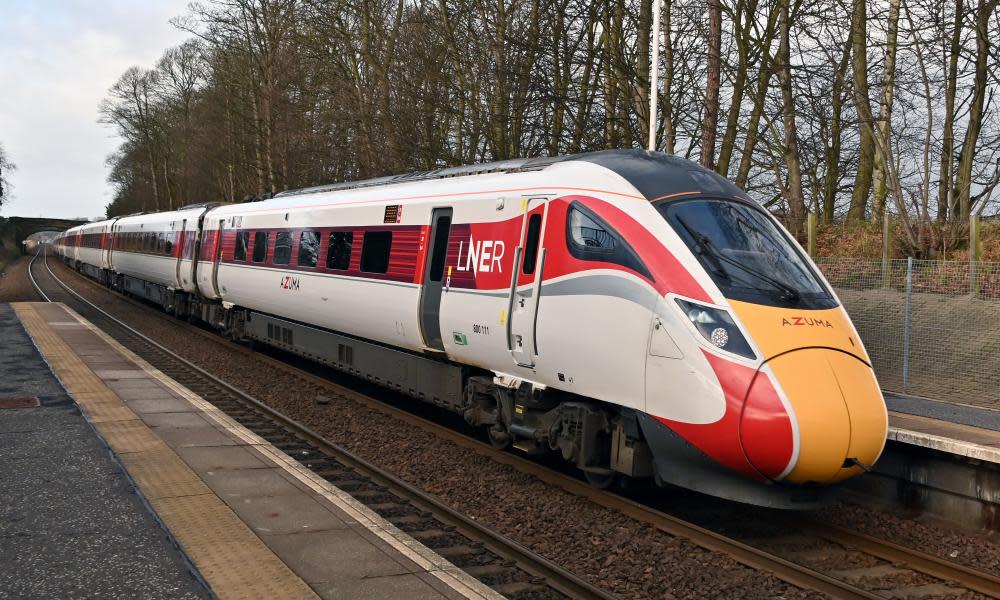UK high-speed trains cancelled after cracks found in carriages

Rail passengers are facing significant disruption after cracks were found on high-speed trains.
Services on Great Western Railway and London North Eastern Railway services have been suspended. Urgent inspections are being carried out across the two operators’ fleets, after hairline cracks were discovered in several of its high-speed trains.
Hull Trains was also experiencing “major disruption” on Saturday morning but the company has since said its services are back running as normal.
However, a spokesperson said: “Due to the significant disruption that has taken place we expect our services to be extremely busy and we cannot guarantee that social distancing guidelines will be adhered to.”
TransPennine Express (TPE) trains has also been taken out of service for safety checks.
A GWR spokesperson said its long-distance services and those of Hull Trains, LNER and TPE could be affected by cancellations on Sunday too.
When asked how long the disruption would last, the spokesperson said: “It’s a question of how quickly the trains can be inspected – it’s highly likely that it will certainly persist through to the end of today.
“Once more inspections have been carried out, we’ll have a better understanding as to whether that disruption is going to continue into tomorrow.”
Roger Ford, the industry and technology editor at Modern Railways, told the Today programme, that significant disruption was to be expected for a while, as the trainmaker Hitachi had more than 4,000 brackets on about 1,000 vehicles to inspect.
“It’s going to take a long time to check them. And repairs will be very difficult,” he said, adding that the entire GWR Intercity LNER fleets would be out of service while the inspections were ongoing.
“There will be disruption for quite a time,” he said.
Michelle Hammond, 38, an executive assistant from London, had been planning to travel with her husband and their 11-month-old baby from Tiverton Parkway in Devon to London. “It’s a disaster. We were supposed to meet with builders who are working on our family home – we are staying with my parents temporarily in Devon.
“We checked the GWR live train tracker and Trainline this morning and both were showing our 9.31 service to London Paddington was running. We left home just after 8am and drove for an hour to the station, paid for our parking for the whole day, only to be met by a sign on the platform that told us the train was cancelled. The station master told us the train had been cancelled first thing – way before we’d left home – and he apologised that the live trackers hadn’t been accurate. It’s very frustrating, we’re massively out of pocket.”
A spokesperson for GWR said cracks were found in two of its Hitachi 800 trains during routine maintenance, and that all trains of this model now had to be inspected.
Customers were advised not to travel on Saturday as all high-speed GWR services between London, Bristol, Cardiff and Penzance have been cancelled.
LNER also advised its customers not to attempt to travel.
⚠️ #LNERUpdate Our sincere apologises to all customers who are facing disruption today.
Our advise is to please defer your travel. Tickets will be valid up to and including Sunday 16th May 2021. pic.twitter.com/4boq30AIoM— London North Eastern Railway (@LNER) May 8, 2021
TPE said its Nova 1 trains had been affected and were being checked. A TPE spokesperson said: “This problem is being investigated by the train manufacturer and once trains have been checked, we hope to be able to release them back into service as soon as possible.”
Hitachi Rail apologised for the disruption. A spokesperson said: “We are working with all partners to resolve this issue as quickly and safely as possible. We would like to offer our sincerest apologies to passengers for the impact this may be causing for their travel plans.”
In April, a crack of “substantial depth” was found during an inspection on a carriage of one of GWR’s new Intercity trains of the Hitachi 800 model.
According to a Railway Gazette report, further cracks were found in equipment designed to prevent the train from swaying in eight out of 93 trains in the fleet.
Ford said it looked like a case of metal fatigue affecting a bracket device that helps stabilise the train, a problem that was first noticed in April.
“They discovered in April hairline cracks on some trains […] sort of 15mm deep, and they’ve taken them out of service for repair. But it now looks as though there is more concern about this than we thought at the time,” he said.
“It’s not a major safety issue but obviously metal fatigue gets worse, the cracks get deeper and the bracket could fracture, but in my judgment that would be a fair way away.”
Mick Lynch, general secretary of the Rail, Maritime and Transport union, said: “RMT is fully aware of the issues that have led to the cancellation of services on LNER today and that similar problems with cracks appearing in the fleet on Great Western are also emerging.
“Hitachi needs to ensure the highest safety standards and properly investigate and rectify the issues.”

 Yahoo News
Yahoo News 
